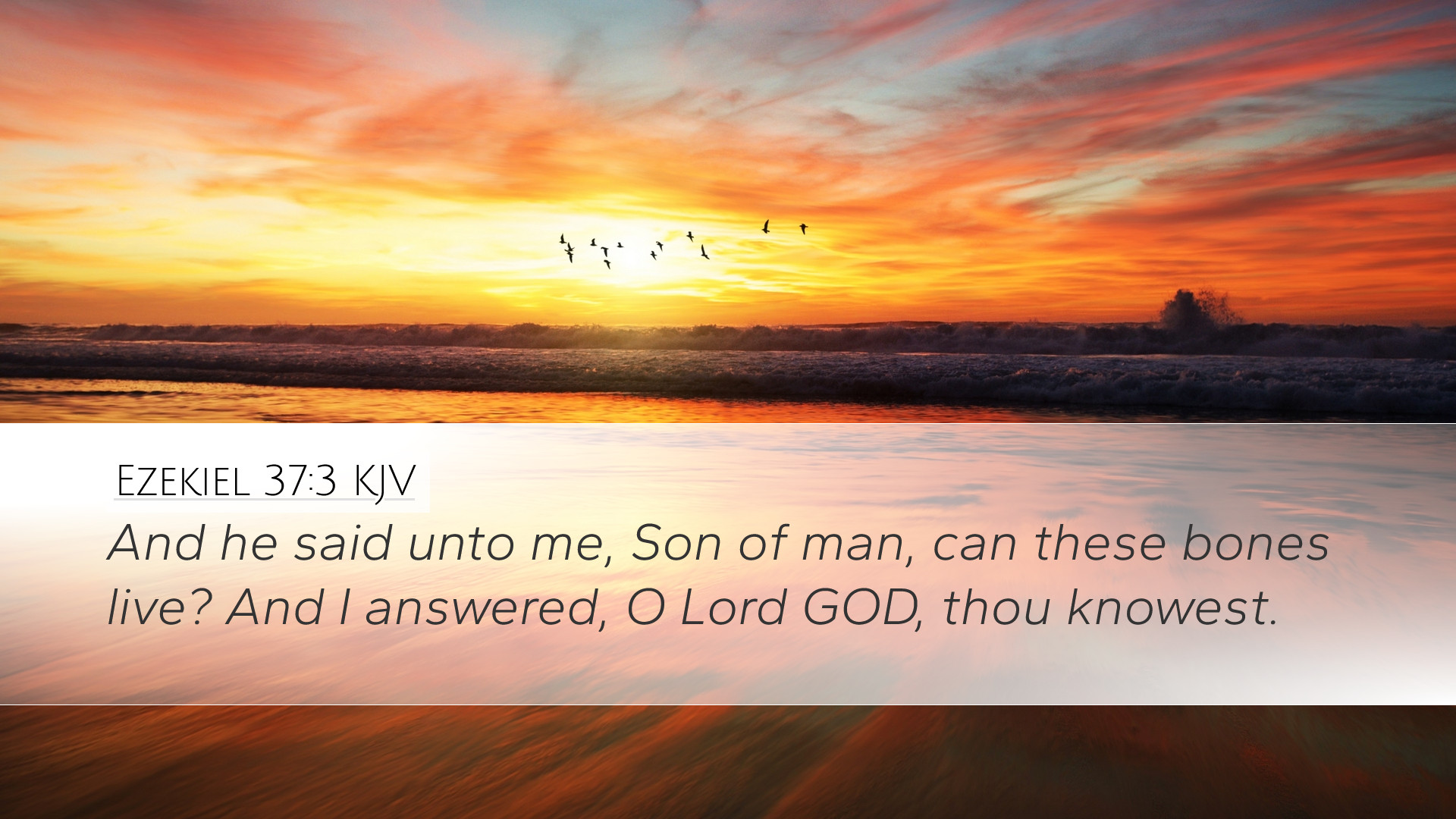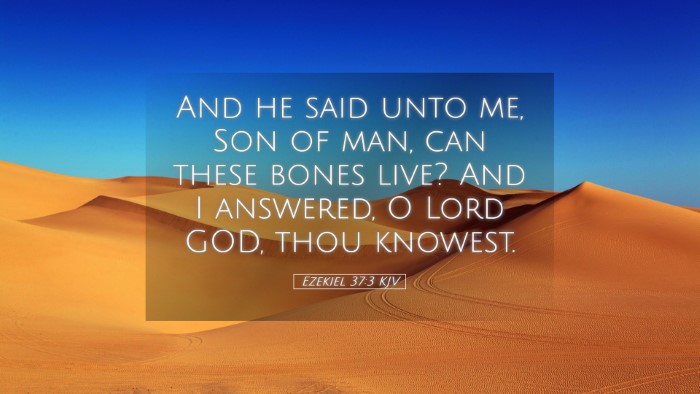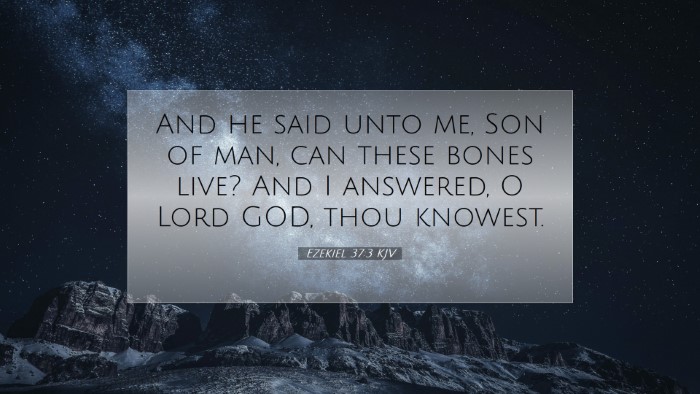Ezekiel 37:3 - Commentary and Insights
Verse Context: Ezekiel 37:3 states, "And he said unto me, Son of man, can these bones live? And I answered, O Lord God, thou knowest." This verse is situated within the famous vision of the valley of dry bones, where the prophet Ezekiel receives a profound revelation about Israel's national restoration.
Overview of the Passage
This passage serves as a powerful metaphor for spiritual renewal and revival. Here, God challenges Ezekiel with a question that reflects both His sovereignty and the limits of human understanding. The dry bones symbolize the state of Israel, which was in despair and seemingly beyond hope.
Commentary Insights
Matthew Henry's Commentary
Matthew Henry emphasizes that God's inquiry to Ezekiel mirrors a deeper theological point: God often calls His prophets to engage with seemingly impossible circumstances. He notes that the bones represent the whole house of Israel, suggesting despair and death that comes from exile. Henry illustrates that God's questioning is meant to draw out an acknowledgment of His power, as He is the only one who can impart life to what is lifeless.
Albert Barnes' Notes
Albert Barnes draws attention to the significance of the phrasing, "can these bones live?" He argues that this rhetorical question serves multiple purposes: it confirms God's omnipotence while simultaneously highlighting the despair within Israel. Barnes notes that Ezekiel's response, recognizing God's omniscience, indicates a humility and submission that is vital for understanding divine restoration. The implication here is clear; only God knows the extent of His power to bring life to the dead.
Adam Clarke's Commentary
Adam Clarke points out the profound implications of this exchange. He highlights the symbolism inherent in the 'dry bones' as representing the complete hopelessness of the Israelites. Clarke also discusses the interactive dynamic between God and man, using this verse to illustrate the necessity for divine revelation in understanding the human condition. He stresses that while Ezekiel's answer reflects a fleshly doubt, it acknowledges the fundamental truth that God alone is capable of restoration.
Theological Implications
This verse opens a dialogue about several important theological themes:
- The Nature of Faith: The interaction between God and Ezekiel teaches an essential lesson about faith and trust in God's plans, even when circumstances appear bleak.
- Divine Sovereignty: God's ability to bring life from death reflects His absolute control over creation and destiny.
- Human Limitations: Ezekiel’s admission highlights the human recognition of our vulnerabilities and limitations, serving as a foundation for true faith.
- The Promise of Restoration: The answer lies in the prophecy that follows; the restoration of Israel serves as a powerful reminder of hope for God's people.
Practical Applications
For pastors, theologians, and laypersons alike, the insights from Ezekiel 37:3 are rich in practical application:
- Encouragement in Despair: When facing seemingly impossible situations, reflect on God’s ability to bring change and revival to any circumstance.
- Renewed Perspective: Adopt a viewpoint that recognizes God’s involvement in all matters, trusting in His timing and wisdom.
- Call to Intercession: Like Ezekiel, believers are encouraged to actively engage in prayer and intercession for those who are spiritually 'dead' or in despair.
- Teaching Hope: The passage can serve as a foundational text for teaching congregations about hope and the potential for spiritual awakening in their communities.
Conclusion
Ezekiel 37:3 is more than a rhetorical question; it is a profound declaration of the potential for regeneration and renewal. Through the lenses of Matthew Henry, Albert Barnes, and Adam Clarke, we grasp the significance of God's question to Ezekiel and its implications for individuals and the church today. The passage reminds us of our limitations but also of God's infinite possibilities, encouraging us in our walk of faith.


